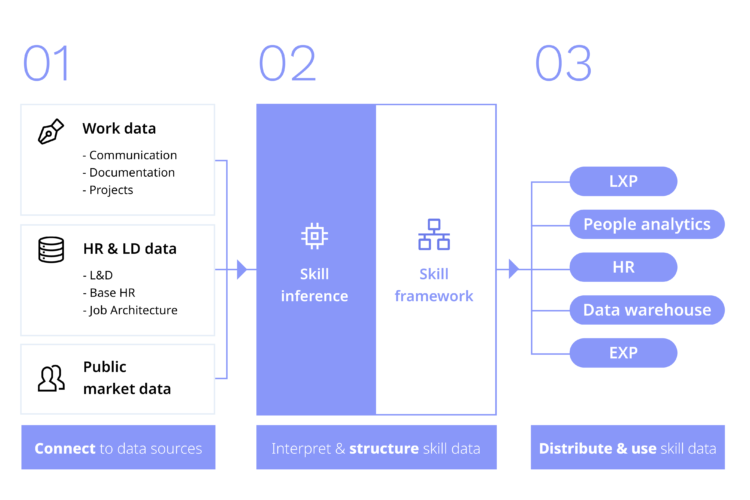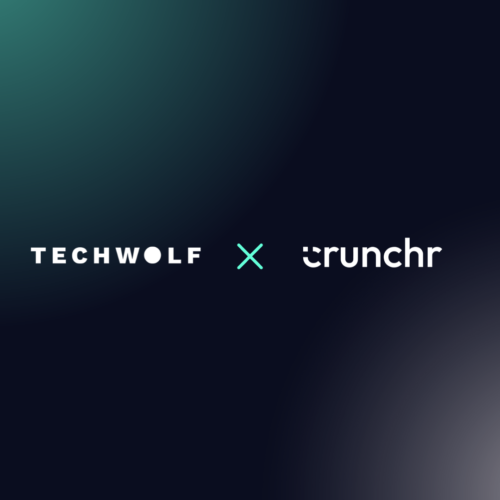Debunking the skill-based organisation for business leaders
The skill-based organisation and what this means for business leaders
From people leaders to the C-suite, skills are on everyone’s minds. Organisations are moving away from the concept of “jobs as the defining structure for organising and managing every aspect of work" to looking at skills as the window into understanding and managing your people. With this view, shifting to a skills-based approach will be key for organisations to survive and thrive in today's world.
Organisations are increasingly shifting towards a skill-based workforce but few have truly succeeded in becoming what’s known as a Skill-Based Organisation (SBO). It risks becoming the latest workplace buzzword if this new way of work isn’t adopted in the right way, with lasting results and scalable processes. The transformation needed to become an SBO runs at two speeds: a long-term transformation that shifts the way we think and go about work from thinking about job titles to looking at individual skills; but also as a solution to near-term, urgent business issues like attrition and reskilling challenges.
Leading the future of work
Make no mistake, the SBO is going to lead in the future of work. As Josh Bersin explains, understanding your workforce’s skills is a critical step in adapting to the times and leadership teams are paying attention to how fundamental this has become.
Yet, organisations are still faced with a crisis - understanding what skills they have.
Almost three-quarters of CEOs are questioning if they have enough key skills to fulfil their business goals, while individuals are wondering if their skills will remain relevant in the future — some 85 million jobs are predicted to be displaced by 2025 while 97 million new jobs will emerge. Hence the urgency to move towards skill-based approaches at scale, quickly. Because in many ways, we’re playing catch-up.
That said, there are some big moves being made by forward-thinking organisations like Unilever, General Motors, and IBM to become more skill-data driven. “We’re beginning to think about each role at Unilever as a collection of skills, rather than simply a job title,” explains Anish Singh, Head of HR for Unilever in Australia and New Zealand. Meanwhile, General Motors is removing degree requirements from job positions that don’t need them. Something that IBM has dubbed “new collar jobs” — roles that require a specific skill set over educational background. Broadening the talent pool in this way is helping organisations to recruit more candidates, boosting diversity, and helping to plug skill gaps.

Siloes are limiting progress
Still, it is only a handful of use cases that the skill-based approach is being applied to. For organisations to adapt and thrive, this approach needs to be scaled across every workforce decision and every people process. That’s where the majority of organisations are coming unstuck. Although 98% of organisations indicate they want to shift towards skills-based work and 90% are actively experimenting with these approaches, only one in five are adopting skills-based practices to extend across the organisation.
This causes siloes to build up that will hinder long-term progress. One organisation might invest in a skill-based talent marketplace, but the insights and benefits of this are kept to just talent acquisition or HR and don’t impact the L&D team. Likewise, another team might embrace a skill-based upskilling strategy, but this exists within learning or individual business units and doesn’t influence the recruitment team.
The answer lies in using skill data to build a tailored, dynamic and comprehensive skill framework.
Building an SBO
In the ideal SBO, high-quality skill data provides a strong foundation for companies shifting towards a skill-based workforce. This needs to be complete, accurate, real-time and unbiased. Why? Because AI models and data-driven decisions are only as good as the data ingested in them. Inaccurate data leads to inaccurate results. At scale, this becomes a serious issue as any inaccuracies and biases will quickly spread throughout all of the workforce decision-making.
Once you know what skill data you have, you can start to build your skill framework. It supports every other skill-based approach you want to make now and in the future, by giving you the overall picture that you need to become an effective SBO. Traditional methods of building a skill framework often give incomplete results as they start from a siloed data source such as a survey or a one-off exercise like a consulting engagement.
Hence why we recommend starting with consolidating all of your available skill data and then letting this data set the structure of your skill framework.
This will give you the right comprehensiveness needed to make your workforce truly fluid and agile because they will no longer be limited by just job hierarchies and roles. People will be able to move roles, projects, and departments based on accurate, up-to-date skill data. This will also have a knock-on impact on your organisation’s ability to quickly enter a new market, launch a product and respond to disruption.

AI leading the way
In order to build a skill framework that is tailored, dynamic and comprehensive, there is one thing that you need: AI. Without it, the work of manually maintaining a skills framework is impossible.
Skills simply change too often for us to manually keep up — they are constantly changing based on new hires, market and business changes, emerging roles, and more. AI works to automatically capture emerging skills and competencies within an organisation’s workforce so HR and business leaders always have an up-to-date view of skills.
In many ways, it is the missing piece we’ve been waiting for. Because skill-based approaches have been appearing in HR and learning circles for several years now. But AI hadn’t been applied to this area to make creating a skill framework a reality. Now that the cards have finally aligned, the SBO will become commonplace. First among market leaders and early adopters, but within the decade most organisations will realise its benefits.




